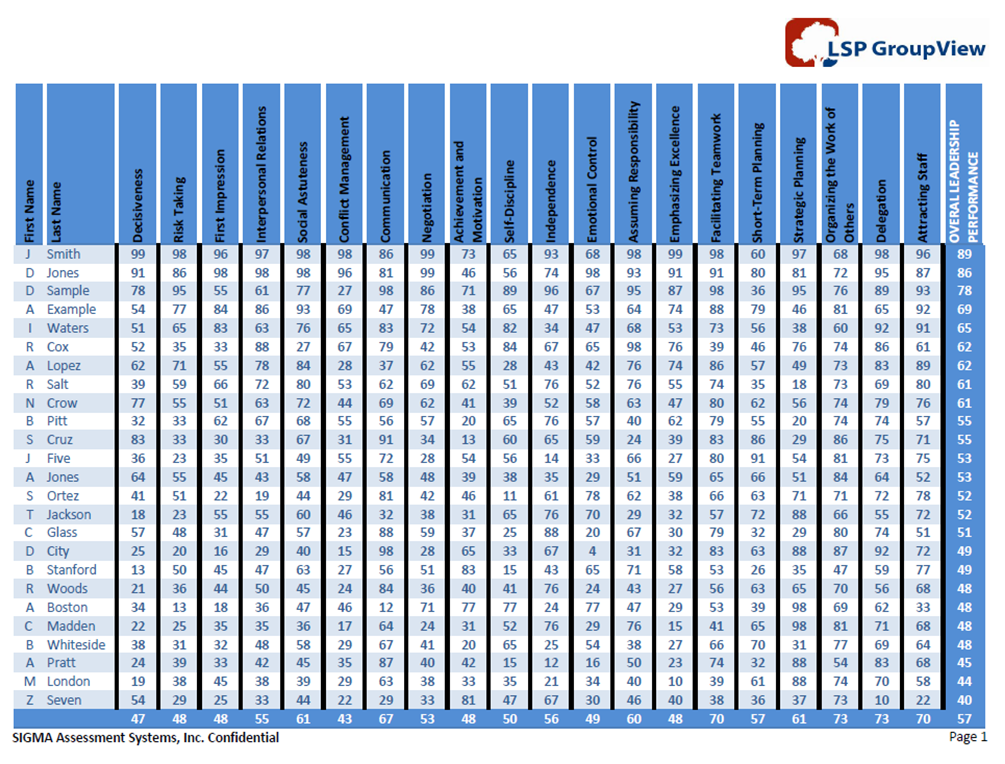When Should You Use Leadership Assessments?
Use Leadership Assessments to Build Better Leaders
“You should measure things you care about. If you’re not measuring, you don’t care and you don’t know.”
– Steve Howard
We can all agree on the importance of leadership in a company. We can also agree that important things should be measured. Consequently, we could argue that everyone should use some form of leadership assessment to select, identify, and develop leaders. Below are just four situations when leadership assessments can help you build better leaders.
1. Hiring a New Manager/Leader
Whether you are filling a management position internally, or sourcing from outside the company, assessments can add a unique and objective perspective to your hiring process. There are a variety of types of leadership assessments that can increase the value of your management hiring process. For instance, you can measure leadership style, leadership personality, leadership character, and leader performance. The best way to ensure that you select the most valid assessment(s) is to enlist the help of experts. However, you can also follow a similar process to:
- Assess your company’s future direction and where it is today
- Define the requirements for the new leader (hint: this is about more than the job description)
- Select the leadership assessment(s) that provides the most relevant data to support your hiring decision
2. Identifying Hi-Potentials
Similar to hiring a leader, identifying your Hi-Potentials should always start first with developing a clear understanding of your company’s current and future leadership needs. Second, create formal success profiles for each leadership position or family of positions. Next, once your success profiles have been established:
- Choose assessments that best measure the criteria identified in the success profiles
- Assess and establish a baseline of your current talent
- Use the data from your baseline assessment to help allocate resources, and decide both who should be developed and what competencies need investment
- Measure ongoing growth with periodic assessments like a 360 degree feedback tool
Figure 1 – GroupView Report from Leadership Skills Profile
3. Planning for Succession
A succession planning process requires you to create a structured approach for measuring your current baseline, predict your future leadership needs, and plan for how you will meet those needs. Therefore, leadership assessments can be a critical tool to help:
- Establish a baseline for your current management team and use that data to shape future requirements
- Measure leadership strengths and development opportunities for those next in line to identify gaps, help determine readiness, and create formal development plans to prepare them
- Identify Hi-Potentials in order to create a deeper roster of leadership readiness for the future
4. Developing Leadership
Leadership development is at the core of everything that we do to build better leaders.
Assessments offer a simple, yet effective, leadership development tool that helps your leaders:
- Demonstrate a greater degree of self-awareness
- Validate leadership strengths and opportunities for development using a variety of perspectives
- Prioritize development opportunities with the best chance of success
- Understand how strengths and development opportunities impact performance
- Develop a formal Individual Development Plan (IDP) to set goals to enhance leadership effectiveness
In short, while you can certainly develop leaders without using assessments, it is near impossible to gauge their effectiveness without some form of assessment.
For more information on how we use leadership assessments to help our clients build better leaders, contact me directly or complete our contact form.

